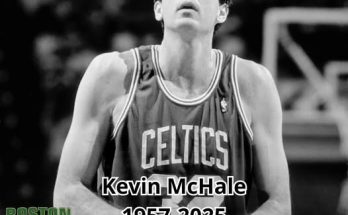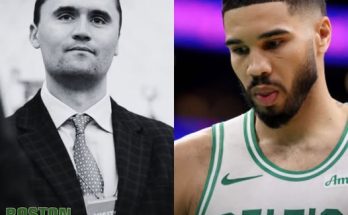The NFL offseason is always a breeding ground for bold predictions, wild hypotheticals, and jaw-dropping trade proposals, but FanDuel’s latest suggested scenario may be one of the most seismic yet. According to a recent speculative piece from FanDuel, a trade that sends Pittsburgh Steelers superstar linebacker T.J. Watt to the Detroit Lions could not only shift the balance of power in the NFC but also spark league-wide ramifications. Watt, a perennial Defensive Player of the Year contender, represents the very identity of Pittsburgh’s defense, and imagining him in a different jersey is nearly sacrilegious for Steelers fans. Yet, the notion of pairing him with Detroit’s up-and-coming core is enough to get Motor City buzzing.
FanDuel’s trade proposal isn’t just a whimsical thought—it’s a calculated suggestion rooted in strategic fit, roster building, and financial implications. The proposed deal would see the Lions part with multiple first-round picks and a premium defensive player, in exchange for Watt and perhaps a late-round pick to balance value. On the surface, that’s a king’s ransom. But when examining what Watt brings to the table and what Detroit is building, the logic becomes compelling.
T.J. Watt is not just a player—he’s a franchise-altering force. Since entering the league in 2017, Watt has terrorized quarterbacks, recorded staggering sack totals, and established himself as the heart and soul of the Steelers’ defense. He holds the single-season sack record, tied with Michael Strahan at 22.5, and he’s consistently among the league leaders in pressures, quarterback hits, and tackles for loss. Watt isn’t just a pass-rusher; he’s a complete defender with elite instincts, leadership, and motor. Any team fortunate enough to acquire him would be instantly catapulted into defensive contention.
For the Lions, the timing could not be more perfect. Under head coach Dan Campbell and general manager Brad Holmes, Detroit has undergone a complete cultural overhaul. What was once a perennially underperforming team is now a legitimate contender, powered by a physical run game, an aggressive defense, and a fearless mentality. Jared Goff has re-established himself as a viable franchise quarterback, the offensive line is among the league’s best, and young defensive stars like Aidan Hutchinson and Brian Branch are beginning to blossom. The addition of T.J. Watt to that mix would turn Detroit’s defense from promising to ferocious.
Imagine a front seven anchored by Watt and Hutchinson on opposite edges, forcing quarterbacks into split-second decisions and collapsing pockets with ruthless efficiency. The Lions were already a top-10 run defense and improving as a pass-rushing unit. Adding Watt’s production and presence would give Detroit a feared identity on both sides of the ball. That’s a nightmare scenario for NFC North quarterbacks like Jordan Love, Caleb Williams, and even the always-dangerous Kirk Cousins. And beyond the division, a Lions team with Watt becomes a serious Super Bowl threat, capable of going toe-to-toe with the Eagles, 49ers, or Cowboys.
But why would the Steelers even consider such a trade? That’s the question echoing across Pittsburgh message boards and sports talk radio. T.J. Watt is the face of the franchise. His leadership, loyalty, and relentless work ethic embody the “Steel Curtain” legacy. However, FanDuel’s hypothetical roots itself in realism: the NFL is a business, and sometimes even legends become trade assets. Watt is now 30 years old and has battled some injuries in recent years. While still dominant, Pittsburgh could look to the future and capitalize on his immense value while they can. If the Steelers feel they’re not in position to make a deep playoff run in the near term, acquiring premium picks and a young defensive cornerstone could be their way of rebuilding quickly.
It’s also worth noting the Steelers’ cap situation. Watt is due a sizable chunk of money over the next few years, and restructuring contracts to make room for offensive upgrades—especially at quarterback—has proven difficult. The team has struggled to consistently find dynamic playmakers on offense, and moving Watt for draft capital would allow Pittsburgh to build through youth and balance the roster. It’s a painful thought, but sometimes taking a step back is the fastest way forward.
From a league-wide perspective, the trade would send shockwaves. The Lions, once the NFL’s lovable underdogs, would be rebranded overnight as a ruthless, win-now powerhouse. Dan Campbell’s squad would be expected to make deep playoff runs, and expectations would skyrocket. The addition of a player like Watt doesn’t just improve a team—it shifts the team’s entire ceiling. It would also reframe the NFC playoff picture, pitting the Lions against teams like San Francisco and Philadelphia with a legitimate shot to win in the trenches.
There’s also the emotional component of such a trade. For Steelers fans, saying goodbye to Watt would be like the franchise parting with Troy Polamalu or Hines Ward. He’s that beloved. And for Watt himself, the idea of suiting up for a new team after spending his entire career in Pittsburgh might be a jarring one. He’s always spoken highly of the city, its fans, and its football tradition. The Watt name—shared with his brothers J.J. and Derek—is etched into NFL lore, and T.J.’s chapter with the Steelers has been nothing short of iconic. Still, the NFL has seen beloved figures move on before. Reggie White left Philadelphia. Tom Brady left New England. Peyton Manning left Indianapolis. The league moves fast, and sentimentality rarely overrides strategy.
From a financial and team-building standpoint, Detroit would likely embrace Watt’s contract, knowing that his impact justifies the cost. They have cap space, flexibility, and a front office that’s shown a willingness to go all-in when the window is open. Holmes and Campbell would recognize that elite defensive players are often the difference-makers in January and February. And Watt’s personality would fit right in with the Lions’ gritty, hard-nosed culture. He’s a leader, a tone-setter, and a player who leads by example—traits that Campbell adores.
In terms of scheme, Watt would fit seamlessly. Defensive coordinator Aaron Glenn would have a field day drawing up blitz packages and stunts with Watt and Hutchinson flanking both edges. Opposing offensive lines would have to pick their poison, and the trickle-down effect would create more one-on-one opportunities for interior linemen and linebackers. Coverage would benefit too, as quarterbacks forced into quicker throws tend to make more mistakes. The entire unit would rise with Watt in the fold.
For T.J. Watt himself, such a move could be reinvigorating. Joining a young, ascending team hungry for success could reignite his competitive fire in a new way. The Lions’ locker room is known for its camaraderie, and Watt would instantly command respect. Playing in a dome with a fast track could even boost his sack totals, and he’d be chasing greatness alongside a team with real championship aspirations. That’s an opportunity few elite players ever get, and Watt could see it as a challenge worth embracing.
Still, all of this remains speculative for now. FanDuel’s trade proposal may not be based on actual front-office conversations, but it does highlight how dramatically one player can reshape the NFL landscape. It forces fans, analysts, and even executives to consider possibilities that might otherwise be dismissed as unrealistic. And in today’s NFL, no move is truly off the table. The league has shown time and again that bold, franchise-shifting trades can—and do—happen. Tyreek Hill to the Dolphins. Jalen Ramsey to the Rams. Christian McCaffrey to the 49ers. So why not Watt to the Lions?
The idea of T.J. Watt in Honolulu Blue is still surreal. But it’s also intoxicating. For Detroit, it would be a once-in-a-generation opportunity to add a future Hall of Famer in his prime. For Pittsburgh, it could be the painful but necessary first step toward long-term success. And for the NFL, it would be another reminder that the league never stops evolving, and that legends can change teams in an instant.
Only time will tell if such a blockbuster ever materializes. But until then, fans of both teams—and of the sport itself—will continue to imagine the impact of a trade that would shake the foundation of two proud franchises and perhaps rewrite the narrative of the 2025 NFL season.



